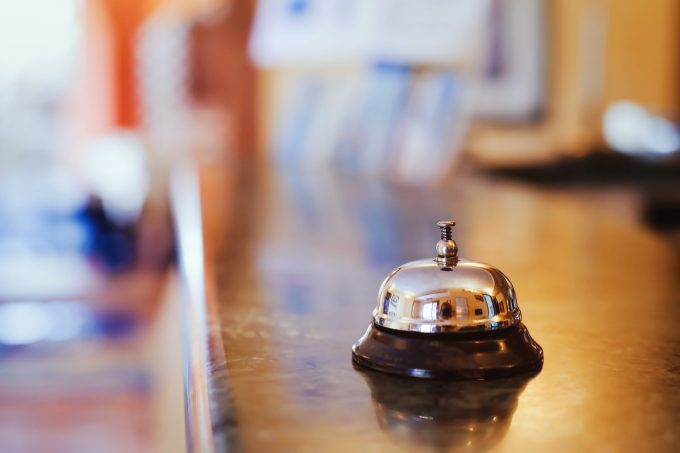
Brand hijacking – OTAs profiting from your hard earned reputation
The relationship between the accommodation sector and online travel agents has been a complex one for several years now.
OTAs have, over the years, grown from an eagerly embraced solution to online marketing to an almost love-hate relationship on occasion referred to as a sort of strained marriage. Among the variety of issues facing the industry (such as rate parity, minimum rate guarantees and inflated commissions) is the less understood or acknowledged practice of brand hijacking where the OTA uses a property’s actual name in their search engine marketing.
The end effect of this in a Google Adwords campaign can be that the OTAs paid listing for say “A Little Motel” can appear above either the natural or paid listings for www.alittlemotel.com.au even if the potential guest searched directly for “A Little Motel”. The clear implication of this is that the potential guest knows enough about your business to search for it directly yet the OTA has hijacked your brand development success to gain the commission.
There are some who would argue is a very seriously problem for the industry and the practice should be banned. Complicating the matter is the fact that many independent hotels either don’t know it is happening to them, don’t know what to do or (it has been reported), are too scared to do anything about in case they upset the OTA and they shut them off.
For their part Google won’t actively facilitate the process of stopping this practice and seemingly they turn a blind eye towards it given they are earning big dollars from the OTA pay per click campaigns. Many OTAs spend millions and millions of dollars with them and it is doubtful they want this revenue to reduce.
On the hotel’s side, it is bad business for them for the client ends up booking via the OTA and the hotel has to pay up to 25% in commission to the OTA. The clear goal for accommodation providers should be to focus more on Internet marketing that drives bookings via the direct channel rather than relying on OTAs. Unfortunately many hotels in Australia, large and small independent still rely on OTA for the majority of their business and this is bad for profits. The Accommodation Association of Australia regularly hears comments from members happily praising some OTAs for huge percentages of their business they support without fully considering how those commission dollars could have been better spent. Combine this with the often bizarre issue of rate parity where we can see accommodation rates cheaper on OTA website than on a business’s own website. A big problem!
Most big hotel chains have successfully managed to clean up the advertising on their trademarks as they have the time and resources to do it. Research conducted by TA Fastrack recently, shows that when searching for example for Marriott Hotel and destination you will not see Wotif, Expedia, Orbitz or any other large OTA bidding for the brand name. The same goes for Hilton. These chains have obviously convinced Expedia and other leading OTAs to focus on bringing in incremental revenue.
However when they researched further, it was found that the affiliate websites of these distributors are still advertising on the chain brands. So there is still work to be done to clean up SEM hijacking by the big brands I feel. It would seem the OTAs aren’t really paying consideration to their promise to generate incremental bookings when it comes to independent hotels. They blatantly advertise on brand keywords on Google, Yahoo and Bing.
There is a solution that hotels can use to prevent this from happening and I have helped many do this via lodging an appeal with Google directly. However, accommodation providers own some responsibility for the situation as well, they have allowed this to happen by signing distributor contracts with the OTAs that includes a clause that allows the OTA to bid on their brand name and in many cases provided the lowest rate guarantee as well.
As a solution it is recommended accommodation providers include clauses in their contracts with OTA to prevent such brand hijacking practices. It is a very important step in controlling distribution cost and production. OTAs will generally try to justify the practice offering explanations like their being able to bring bookings from far away countries like China that can’t be reached with our local marketing efforts or they have websites in local language etc. This however is easily counter argued by explaining that this should be done through natural search engine optimisation, and not search engine marketing keyword bidding.
Once the OTA sees you appreciate the matter in full they will often respect your perspective. It is advised that accommodation providers only work with partners that respect the brand and trademarks of the business. Clauses and addenda can be added to the contracts outlining how you want to work together with them and their affiliate websites, creating a win-win situation.
It is hoped that eventually OTAs will see that all hotels will have woken up to the brand hijacking in the search channel. However further education of this issue within the hotel industry is urgently required and the Accommodation Association will continue to look at avenues to provide the direction required.
If they don’t stop the advertising of accommodation brand names and trademarks, OTAs may stand to lose market share to a more online savvy industry increasingly capable of managing their online presence effectively either director or via consultancy services. As the economic outlook improves for accommodation in Australia, operators will gain the upper hand in this partnership and look for alternatives. Accommodation providers will find out that direct distribution through effective Internet marketing is less costly and new supplier friendly OTAs will arise and challenge the status quo.
We may even find a move back towards commission-free advertising directory formats. In the end the hotels have the rooms, which are the real key to this distribution market, and the power of negotiation.
Written in conjunction with Michael Georgeson, general manager operations, Accommodation Association of Australia.

AccomNews is not affiliated with any government agency, body or political party. We are an independently owned, family-operated magazine.







